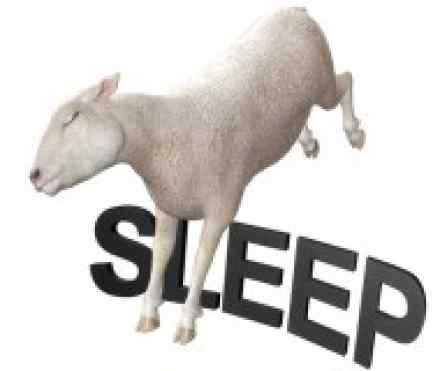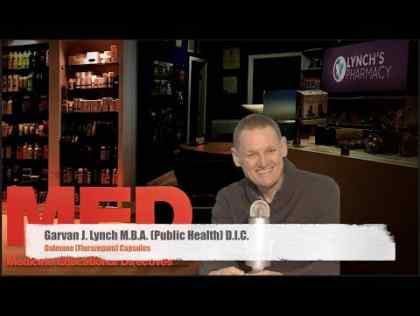
What is it?
Insomnia includes having trouble falling or staying asleep. It's one of the most common medical complaints. With Insomnia, you usually awaken feeling unrefreshed, which takes a toll on your ability to function during the day. Insomnia can sap not only your energy level and mood, but also your health, work performance and quality of life.
How do I recognise it?
Insomnia signs and symptoms may include:
- Difficulty falling asleep at night
- Awakening during the night
- Awakening too early
- Not feeling well rested after a night's sleep
- Daytime fatigue or sleepiness
- Irritability, depression or anxiety
- Difficulty paying attention or focusing on tasks
- Increased errors or accidents
- Tension headaches
- Gastrointestinal symptoms
- Ongoing worries about sleep
Causes
Insomnia most often stems from some other problem, such as a medical condition that causes pain or use of substances that interfere with sleep. Common causes of Insomnia include:
- Stress. Concerns about work, school, health or family can keep your mind active at night, making it difficult to sleep. Stressful life events, such as the death or illness of a loved one, divorce, or a job loss, may lead to insomnia.
- Anxiety. Everyday anxieties as well as more-serious anxiety disorders may disrupt your asleep.
- Depression. You might either sleep too much or have trouble sleeping if you're depressed. This may be due to chemical imbalances in your brain or because worries that accompany depression may keep you from relaxing enough to fall asleep. Insomnia often accompanies other mental health disorders as well.
- Medications. Prescription drugs that can interfere with sleep include some antidepressants, heart and blood pressure medications, allergy medications, stimulants (such as Ritalin) and corticosteroids. Many over-the-counter (OTC) medications, including some pain medication combinations, decongestants and weight-loss products, contain caffeine and other stimulants. Antihistamines may initially make you groggy, but they can worsen urinary problems, causing you to get up more during the night.
- Caffeine, nicotine and alcohol. Coffee, tea, cola and other caffeine-containing drinks are well-known stimulants. Drinking coffee in the late afternoon can keep you from falling asleep at night. Nicotine in tobacco products is another stimulant that can cause insomnia. Alcohol is a sedative that may help you fall asleep, but it prevents deeper stages of sleep and often causes you to awaken in the middle of the night.
- Medical conditions. If you have chronic pain, breathing difficulties or need to urinate frequently, you might develop Insomnia. Conditions linked with insomnia include Arthritis, Cancer, Congestive Heart Failure, Diabetes, lung disease, Gastroesophageal Reflux Disease (GORD), overactive Thyroid, Stroke, Parkinson Disease and Alzheimer's Disease. Making sure that your medical conditions are well treated may help with your Insomnia. If you have arthritis, for example, taking a pain reliever before bed may help you sleep better.
- Change in your environment or work schedule. Travel or working a late or early shift can disrupt your body's circadian rhythms, making it difficult to sleep. Your circadian rhythms act as internal clocks, guiding such things as your wake-sleep cycle, metabolism and body temperature.
- Poor sleep habits. Habits that help promote good sleep are called "sleep hygiene." Poor sleep hygiene includes an irregular sleep schedule, stimulating activities before bed, an uncomfortable sleep environment and use of your bed for activities other than sleep or sex.
- 'Learned' Insomnia. This may occur when you worry excessively about not being able to sleep well and try too hard to fall asleep. Most people with this condition sleep better when they're away from their usual sleep environment or when they don't try to sleep, such as when they're watching TV or reading.
- Eating too much late in the evening. Having a light snack before bedtime is OK, but eating too much may cause you to feel physically uncomfortable while lying down, making it difficult to get to sleep. Many people also experience heartburn, a backflow of acid and food from the stomach to the esophagus after eating. This uncomfortable feeling may keep you awake.
How do you treat it?
Like any disease, even if there is no cure, there is almost always something you can do to manage it and take control. There are three main areas involved in the treatment of any disease:
For information on medicines and therapies relevant to Insomnia, make an appointment at Lynch's Pharmacy, Broadale, Douglas, Cork on 021-4366923.
Learn all about the drugs used to treat the disease and any complementary medicines or therapies proven to help. Equip yourself with the tools to manage the condition and not be managed by it.
How do you live with it?
Certain adjustments may be needed to get on with your life, and often, some simple tips and advice can go a long way to making these changes.
When you come to a Lynch's Pharmacy Clinic, we give you all the necessary information available to make your life more manageable and allow you to better live with your condition.
References
Insomnia-http://en.wikipedia.org/wiki/Insomnia
Insomnia, information for patients http://www.cks.nhs.uk/patient_information_leaflet/insomnia
http://www.sleepfoundation.org/article/sleep-related-problems/insomnia-and-sleep




